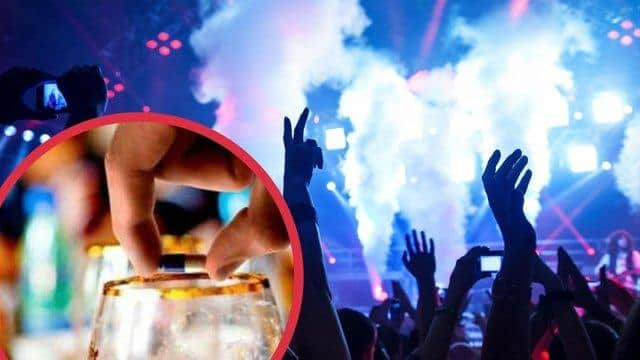Drink spiking and sex assaults soared in Edinburgh as Covid restrictions eased
Between April and December Police Scotland’s Edinburgh division recorded 352 cases of sexual assault – a 70% increase on the same period in the previous year when 207 incidents were recorded.
The figures are included in a report to go before Edinburgh City Council’s policy and sustainability committee next week.
Advertisement
Hide AdAdvertisement
Hide AdDetective Chief Inspector Alan Carson said that Covid restrictions in place over the last two years “undoubtedly impacted the profile of sexual offending”.


He added: “As gradual re-emergence from pandemic related restrictions continues, so we see a correlated return to a crime profile of sexual offending broadly similar to one we recognise from before the pandemic.
“There will be continued vigour around the division’s efforts to target perpetrators of sexual offending. We plan to explore a number of initiatives to identify those who prey on potential victims.”
The figures also showed there were 72 cases of drugging incidents, which include spiking. This is compared to a five-year average of just five incidents.
Officers have linked the increase to “significant media and social media attention” during October and November, when reports of spiking by injection sparked numerous online awareness campaigns and a boycott of bars and nightclubs. A subsequent report ruled out any cases in Scotland of spiking by injection.
Colin Mackie, who founded Spike Aware UK after the death of his 18-year-old son Greg,, said the recorded rise reflected a growing confidence in reporting incidents”.
He added: “Before they felt that no one would take them seriously. It’s like everything else; once they see other people starting to come forward and see something happening, other people get the confidence.
“With social media and all the aspects of that, people are now putting up ‘I’ve been spiked, I’ve reported it’, it does give more people the confidence to go forward.
Advertisement
Hide AdAdvertisement
Hide AdMr Mackie added: “Through Spike Aware, the youngest person we’ve had is 13, the oldest one is 56 so we’ve got a wide range of people who have contacted us, and some people are just looking for someone to talk to. Other people are just looking for advice.”
Mike Kill, Chief Executive of the Night Time Industries Association Scotland said: “Without a doubt I somewhat agree with the police’s take on it that the exposure in the media has made a big difference and given people confidence to come forward.
“I think there’s a lot of work being done in terms of searching, training for staff, we’re looking at mechanical barriers, the testing mechanisms that will allow us to understand whether someone has been potentially spiked so we can then progress it onto the police.
“The other thing that I think is overarching as well is looking at enhancing things like female members of security which I think is really important or having welfare champions in venues which has been quite key and a lot of people have adopted these mechanisms up and down the country.”
